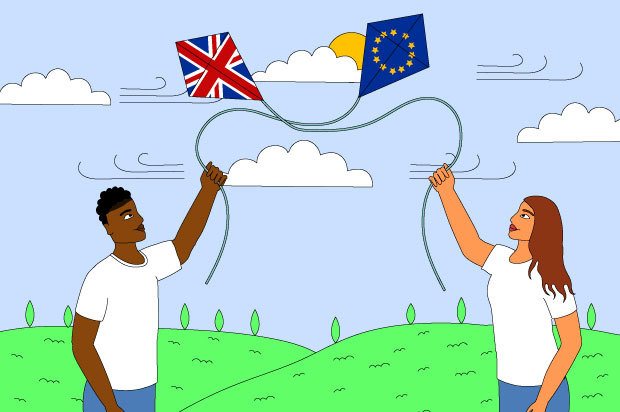What does lockdown mean for Brexit?

The latest update on Brexit
With everything that’s been going on lately, it’s pretty easy to forget all about Brexit (and we don’t blame you if you want to), but it’s important to keep track of the progress and how it might impact you, so here’s a handy summary and a guide to the most recent updates.
A summary of past events
Most of you will know that in 2016 there was an important historical change in the dynamics of the EU, with the UK deciding to leave. The referendum saw a 52% vote to leave and to 48% remain. Since then, there have been many twists and turns, with a change in Prime Minister and lots of discussions taking place with other EU members on exactly how we should leave.
Before the outbreak of coronavirus across Europe and beyond, there was a monumental occasion within UK politics: on the 31st January 2020, the UK stopped being a member of the EU. Understandably, this has taken a back bench during the current situation, but for those who wish to know more about the next steps for a post-Brexit Britain, here is a breakdown:
What’s the current situation with Brexit?
As of the 31st January 2020, the UK is no longer a member of the EU, but we are now in a “transition period.” The rules and regulations of the EU still apply until the transition period ends on the 31st December 2020, which has been set out in a withdrawal agreement. The transition period is meant to be a time in which discussions and agreements take shape, for example, an updated trade deal, negotiations on the rights of citizens and other important matters.
What impact has lockdown had on the progression of Brexit?
As well as rapidly changing all our lives, the coronavirus pandemic has halted some of the progress in these discussions, as the government focuses on trying to cope with the crisis. After the first round of talks took place in early March, there was a suspension of face-face talks for up to six weeks. Since then, a video conference took place on the 20th April, with further negotiations scheduled for the beginning of May and June.
The UK did have the option of a two-year extension to this transition period, to allow more time for negotiation. However, despite the impact that coronavirus has had to the schedule, the UK has ruled out this option. This means that the UK could potentially leave the UK without an agreement on terms.
Do I still need to apply for settled status?
The answer is yes! If you are an EU citizen, it’s important that you and your family members apply for the settlement status to allow you to remain in the UK legally.
If you or your family members are an EU citizen and you are able to prove that you have lived in the UK for five years or more, you will be granted settled status. Those who have lived in the UK for less than five years will be granted pre-settled status.
The application process has been made as straightforward as possible, with applicants only needing to complete three key steps: proof of identity, proof that you live in the UK and a declaration of any criminal convictions. The only complexities arise if people need to show additional documents for proof of residence.
Here is a link for those wishing to apply: https://www.gov.uk/settled-status-eu-citizens-families
Watch our video for Veronica’s handy tips on applying for settled, or pre-settled status:
Head here to watch tip two and tip three from Veronica!
Does lockdown mean deadlines will be extended?
The current deadline to apply for the settlement scheme is the 30th June 2021. There has been some impact to the support services and some application routes have temporarily changed. The Home Office is keeping the situation under constant review and will make any changes if necessary.
The Government has also made it clear that where a person is eligible for leave under the EU Settlement Scheme and has reasonable grounds for missing the application deadline, they will be given a further opportunity to apply.
Here are some reliable and trustworthy pages with relevant information which may be useful:
Information on transition period: https://www.gov.uk/transition
Information for people living in Northern Ireland: https://www.nidirect.gov.uk/articles/brexit-ni-advice-leaving-eu
If you’re still feeling confused about Brexit…
You can keep yourself up-to-date on events, by reading a variety of newspapers and websites to get a balanced view. Take a look at this handy guide from Here For Good Law and head to the 3 Million for more useful information. You can also visit The Mix for factual breakdowns.
If you’re worried about Brexit or find it is making you anxious, speak to The Mix’s team of experts and trained volunteers, who offer free and confidential support and advice on any issue.
Next Steps
- Here for Good offer free immigration advice to EEA citizens and their non-EEA family
- Coram's Children's Legal Centre offer legal advice about applying for settled status
- The EU Londoners Hub is a brilliant resource (not just for people from London!) If you or your family are from the EU you'll find lots of detailed information on their website
- Chat about this subject on our Discussion Boards.
By Monica Guram
Updated on 14-May-2020
No featured article











